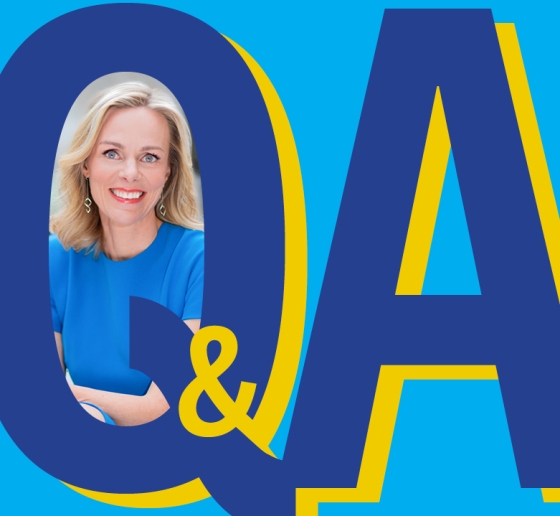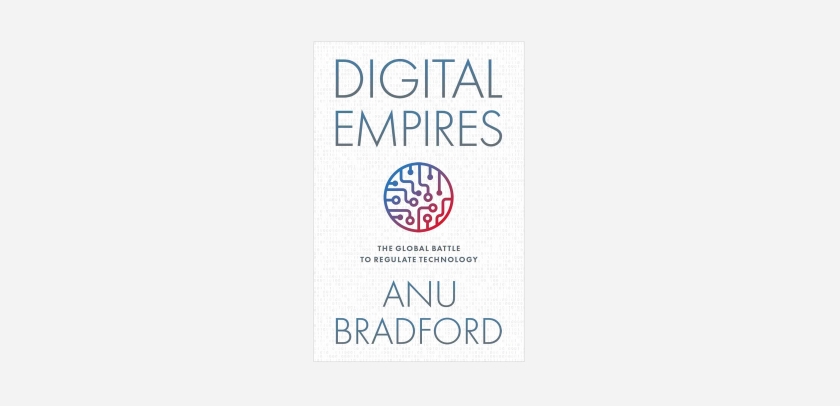On the E.LL.M. Experience With Professor Anu Bradford
Bradford, a leading scholar on the EU’s regulatory power and a member of the Law School's renowned business law faculty, discusses the unique and transformative benefits of the Executive LL.M. program at Columbia Law.

The Executive LL.M. (E.LL.M) at Columbia Law School is an accelerated, hybrid degree program in Global Business Law that provides students with the essential skills and knowledge needed to advance their careers as lawyers and leaders in just over six months. Designed for experienced lawyers who can continue working during the online components, the program is taught by the Law School’s renowned business law faculty, including Anu Bradford, Henry L. Moses Professor of Law and International Organization. A leading scholar on the EU’s regulatory power, Bradford is author of The Brussels Effect: How the European Union Rules the World—named for the term she coined to describe the EU’s outsize influence on global markets—and, most recently, Digital Empires: The Global Battle to Regulate Technology, published in 2023. At Columbia Law, she teaches a number of courses on international law and law and technology, including Regulation of the Digital Economy for E.L.L.M. students. Below, Bradford discusses the unique and transformative benefits of the E.LL.M. program at Columbia Law.
How might you describe Columbia Law’s E.LL.M. students?
I am always impressed by how thoughtful and creative the E.LL.M. students are, and fascinated by their career paths, both before and after their studies. The students, who typically have worked for several years in a variety of legal areas—including both the private and public sectors—enrich classroom discussions and bring perspectives informed by their own experiences as practicing lawyers. The E.LL.M. program is an intense but deeply engaging and professionally rewarding academic experience. They learn a lot from me, but they also learn a lot from each other, given the small class size and the interactive way of teaching and learning that is paramount to the program.
The E.LL.M. program is a hybrid format: Students take courses online while they are working around the world and also attend a 12-week summer residency at Columbia Law School. How do E.LL.M. students benefit from those three months on campus, and what makes the E.LL.M. community special?
Columbia Law School is a vibrant intellectual community that attracts exceptionally talented students who are committed to making the most of their educational experience with us. The E.LL.M. cohort is no exception. They are a tight-knit community, deeply supportive of one another. When they arrive on campus, E.LL.M students work hard in the classroom, but they also enjoy exploring New York City and building the social bonds and professional networks that are developed through their residency. New York City is also a special place to pursue graduate studies. The energy and the diversity of the city bring their own excitement to the E.LL.M. experience, giving students access to thought leaders, legal professionals, and cultural experiences that would be hard to replicate elsewhere.
Students in Columbia Law School’s E.LL.M. program take courses in, for example, mergers and acquisitions, international commercial arbitration, lawyer leadership, and intellectual property law, along with your class, Regulation of the Digital Economy. What important topics do you cover in your course?
Regulation of the Digital Economy examines legal and policy developments affecting tech companies, focusing on the regulatory environment in the United States, the European Union, and China. We cover topics such as data privacy, antitrust law, the regulation of online content, artificial intelligence, and platform workers. We study regulatory conflicts between the U.S. and the EU over issues like data transfers and analyze the drivers and implications of the ongoing tech war between the U.S. and China. By the end of the course, students gain a clear sense of the legal issues facing tech companies as well as an understanding of how law, technology, and geopolitics intersect.
Online and in person, E.LL.M. students participate in small classes, giving them ample opportunities to engage with their professors. You’ve been a member of Columbia Law’s faculty since 2012 and are also the director of the European Legal Studies Center. What does it mean to you to be a Columbia Law faculty member, and how do the faculty bring their expertise into the learning environment?
I love being a member of Columbia’s world-class faculty as I can interact daily with the leading thinkers and scholars on all areas of law. Our faculty have diverse academic interests and methods of teaching. Some have deep ties to legal practice; others have held positions in the government. Still others, like myself, are committed to shaping public discourse and government policies through research and public engagement. Ultimately, what binds us together is our commitment to pushing the boundaries of legal thinking and delivering the best possible education for our students. For me personally, this is the most rewarding profession, as it gives me the chance to shape the next generation of legal professionals who go on and excel, contributing to better-governed companies, societies, and communities through their impactful work.
This interview has been edited and condensed.
